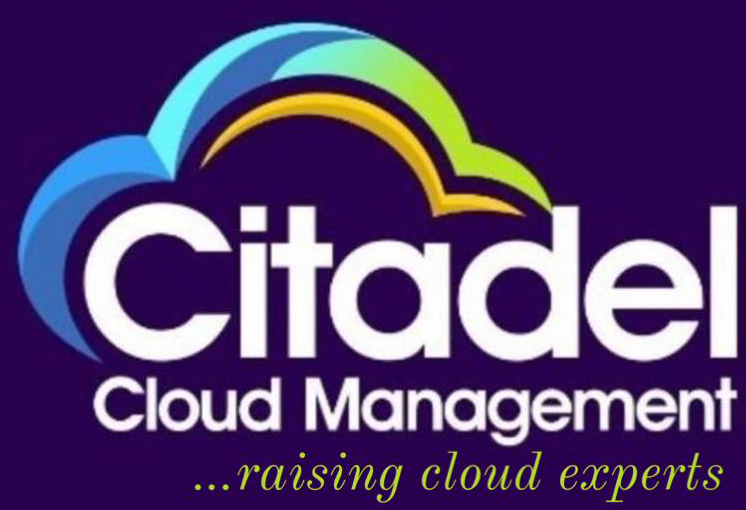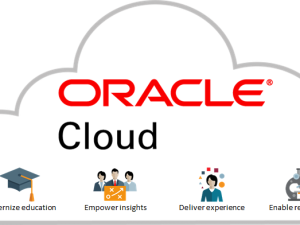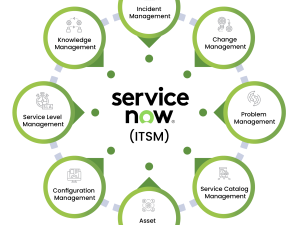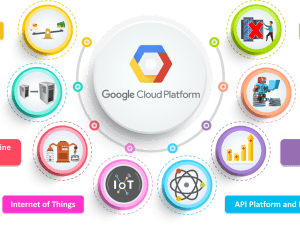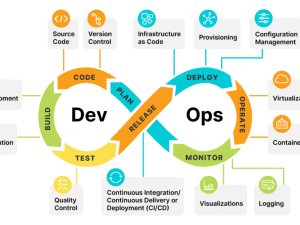Product Management | Project Management | Business Analyst | Business Data Intelligence
- Description
- Curriculum
- Reviews
In an era where technological advancements and business demands are evolving at an unprecedented pace, Citadel Cloud Management stands out by offering a comprehensive approach to mastering both business analysis and project management. This review delves into the essential components covered by Citadel Cloud Management, highlighting their effectiveness in driving organizational success.
1. Introduction to Business Analysis
Citadel Cloud Management provides a robust foundation in business analysis, crucial for any project’s success. By introducing the role of business analysts and their importance in aligning business needs with project outcomes, the platform sets the stage for a deeper exploration of analysis techniques. This introduction is well-structured, ensuring that users understand the significance of business analysis in the context of their projects.
2. Business Analysis Planning and Monitoring
Effective planning and monitoring are at the heart of successful business analysis. Citadel Cloud Management excels in emphasizing the need for a clear plan and robust monitoring mechanisms. The platform’s approach ensures that business analysis activities remain on track, adapting to changes as needed, and aligning with project goals. This section is particularly useful for users looking to establish best practices in business analysis planning and oversight.
3. Enterprise Analysis, Requirements Elicitation, and Analysis
Understanding the broader organizational context and accurately capturing requirements are crucial for project success. Citadel Cloud Management’s focus on enterprise analysis and requirements elicitation through various techniques—such as interviews and workshops—provides a comprehensive framework for gathering and prioritizing requirements. This section ensures that users can create actionable requirements that guide project development effectively.
4. Business Process Modeling and Improvement
Business process modeling is a critical tool for visualizing and optimizing existing processes. Citadel Cloud Management covers various modeling techniques, including flowcharts and BPMN, and explores strategies for process improvement. This part of the platform is invaluable for users aiming to identify inefficiencies and design streamlined, effective processes.
5. Data Analysis with ML, Predictive Modeling, SQL, and Excel
Incorporating data analysis into business analysis is essential for informed decision-making. Citadel Cloud Management addresses the use of advanced tools such as machine learning, predictive modeling, SQL, and Excel. By leveraging these tools, users can gain insights, forecast trends, and make data-driven decisions that enhance strategic planning and execution.
6. Business Analysis Tools and Techniques
A diverse toolkit is essential for effective business analysis, and Citadel Cloud Management provides a thorough review of various tools and techniques. From requirements management software to data visualization platforms, the platform equips users with the necessary tools to analyze, document, and communicate business needs efficiently.
7. Business Analysis Findings Communication and Documentation
Effective communication and documentation are vital for translating business analysis findings into actionable insights. Citadel Cloud Management emphasizes best practices in documenting requirements, creating reports, and presenting findings. This section is crucial for users who need to ensure that their analysis is clearly communicated and understood by stakeholders.
8. Business Analysis in Agile Environments
With Agile methodologies gaining traction, Citadel Cloud Management explores how business analysis integrates with Agile frameworks. This part highlights the role of business analysts in Agile teams, focusing on iterative development, continuous feedback, and adaptive planning. It’s particularly beneficial for users working in Agile environments who need to understand how to align business analysis with Agile practices.
Project Management Overview
Project management is a structured approach to guiding projects from inception to completion, and Citadel Cloud Management provides a comprehensive overview of this discipline. By covering the application of knowledge, skills, tools, and techniques to meet project objectives within constraints like time, budget, and scope, the platform ensures that users are equipped to deliver projects efficiently and successfully.
Overall Review
Citadel Cloud Management offers a thorough and insightful approach to business analysis and project management. By covering essential topics such as business analysis planning, enterprise analysis, data analysis, and Agile environments, the platform provides users with the knowledge and tools needed to navigate complex projects and achieve strategic objectives. Whether you’re looking to refine your business analysis skills or enhance your project management practices, Citadel Cloud Management delivers valuable content that supports organizational success.
-
1Project Manager OverviewText lesson
This curriculum covers all aspects of Project Management, offering a blend of theoretical knowledge and practical application through structured modules, resources, and implementation steps. Each section is aligned with industry standards, including methodologies like Agile, Scrum, and traditional project management practices.
-
2Agile and Scrum MethodologiesText lesson
Agile and Scrum Methodologies
Learning Objectives:
- Understand the key principles of Agile methodology.
- Learn how Scrum facilitates project management in dynamic and evolving environments.
- Gain insights into Scrum’s roles, sprints, ceremonies, and workflows.
- Learn about Sprint Planning, Execution, and Continuous Improvement in Scrum teams.
-
3Introduction to Project Management Tools & MethodologiesText lesson
-
4Project InitiationText lesson
Project Initiation: A Comprehensive Guide
Learning Objectives:
- Learn how to formally initiate a project, including creating project charters and defining goals.
- Identify key stakeholders and perform feasibility studies to assess the project’s viability.
-
5Project PlanningText lesson
Project Planning
Effective project planning is a critical aspect of successful project management. It helps ensure that all tasks are completed on time, within budget, and with the desired level of quality. Below is an outline of key concepts involved in project planning, along with practical resources, GitHub links (if applicable), and implementation steps for mastering each aspect of the planning phase.
-
6Project ExecutionText lesson
Project Execution: A Guide to Leadership, Communication, and Quality Control
Learning Objectives:
- Gain skills to lead and motivate teams – Learn strategies for effective leadership to inspire your team and foster collaboration.
- Communicate effectively – Master techniques for clear and concise communication within the team and with stakeholders.
- Ensure quality control – Understand how to ensure that a product or service consistently meets quality standards.
-
7Project Monitoring and ControllingText lesson
Project Monitoring and Controlling
Learning Objectives:
In this section, you will focus on learning how to track and control a project’s progress effectively using key methodologies and tools, such as Key Performance Indicators (KPIs), Earned Value Management (EVM), and risk monitoring. You will also learn about managing changes and issues within the project lifecycle.
-
8Project ClosingText lesson
Project Closing: A Comprehensive Guide
Learning Objectives:
- Understand the importance of formally closing a project: Learn the significance of ensuring all aspects of a project are completed and documented before declaring it closed.
- Conducting post-project reviews: Reflect on the project's successes and shortcomings to improve future project management processes.
- Celebrating successes: Recognize the hard work of the team to build morale and encourage continued excellence.
-
9Leadership and Soft SkillsText lesson
Leadership and Soft Skills: Comprehensive Guide
Learning Objectives:
- Develop soft skills critical for successful project management, focusing on leadership, emotional intelligence, and conflict resolution. These skills are essential for handling complex project dynamics, motivating teams, managing stress, and making informed decisions that align with the project goals.
-
10Project Management Tools and SoftwareText lesson
-
11Product Management CurriculumText lesson
Product Management involves an understanding of key areas like product strategy, development, marketing, and analytics, among others. Here's an expanded version of your curriculum with resources, tools, and implementation steps for each section.
-
12Introduction to Product Management and Data Protection in ProductText lesson
Introduction to Product Management and Data Protection in Product
This curriculum aims to provide an in-depth understanding of the role of a Product Manager (PM), the different types of products, key PM skills, and how data protection is integral to product management.
-
13Product StrategyText lesson
-
14Product DevelopmentText lesson
-
15Product Marketing and LaunchText lesson
Product Marketing & Launch
This curriculum outlines a comprehensive approach to understanding and implementing the various facets of product marketing and launching. The goal is to equip you with the knowledge, tools, and resources to launch successful products and execute a high-impact go-to-market (GTM) strategy.
-
16Cross-functional CollaborationText lesson
Cross-functional Collaboration Curriculum
Cross-functional collaboration is essential for building successful products in any organization. This curriculum covers how to effectively collaborate with development teams, manage stakeholders, and work with customers. The goal is to create an environment where communication flows seamlessly between departments, allowing for a more agile, responsive, and customer-centered approach to product development.
-
17Product AnalyticsText lesson
-
18Leadership and Scaling ProductsText lesson
-
19Trends and Innovations in Product ManagementText lesson
-
20Introduction to Digital BusinessText lesson
-
21Digital Marketing and BrandingText lesson
Digital marketing and branding are essential aspects of establishing a successful online presence for businesses. A strong brand identity and marketing strategy can help increase visibility, customer engagement, and ultimately drive conversions. Below is an elaborate guide, along with resources, GitHub links (if applicable), and implementation steps for each component.
-
22E-commerce and Online SalesText lesson
-
23Technology & Automation for Digital BusinessText lesson
-
24Monetization Strategies & Revenue GrowthText lesson
-
25Financial Management & ScalingText lesson
-
26Business Operations & LeadershipText lesson
-
27The Business Analyst (BA)Text lesson
The Business Analyst (BA) curriculum typically focuses on developing skills and knowledge necessary for analyzing business needs, defining solutions, and ensuring successful project execution. Here's a breakdown of what a Business Analyst curriculum might include:
-
28Week 1-2: Introduction to Business AnalysisText lesson
-
29Week 3-4: Business Process Modeling & AutomationText lesson
-
30Week 5-6: Data Analysis & VisualizationText lesson
-
31Week 7-8: AI-Driven Insights & Predictive AnalysisText lesson
-
32Cybersecurity & Risk ManagementText lesson
-
33Business Analyst and Business Intelligence (BI)Text lesson
Understand the core concepts of Business Intelligence (BI) and the role of a Business Analyst (BA) in driving data-driven decision-making to improve business outcomes.
-
34Diagnosing Business Inference with Predictive Modeling, SQL , Excel Machine LearningText lesson
Identify business problems and translate them into actionable data requirements by understanding stakeholder needs, business goals, and data capabilities.
-
35Business Analysis Planning, Stakeholders and MonitoringText lesson
Develop a strategic approach to analyze, plan, and monitor business needs, ensuring that business analysis activities are aligned with organizational goals and deliverables.
-
36Enterprise Analysis, Lifecycles, Requirements Elicitation and AnalysisText lesson
The goal of Enterprise Analysis and Lifecycle Management is to ensure that an organization’s business architecture aligns with its strategic goals, optimizes operations, and adapts over time. This process involves mapping out and analyzing business processes, assessing the current state, defining the future state, developing business cases for change, and measuring benefits to ensure the initiatives add value.
-
37Project Management OverviewText lesson
The objective of understanding project management principles within Business Intelligence (BI) projects is to ensure that the project is planned, executed, monitored, and completed effectively. BI projects typically involve the integration of data, analytics, and reporting systems, and managing these projects requires careful attention to timelines, resources, stakeholders, and the specific goals of the organization.
-
38Integration Management Text lessonText lesson
The objective of Integration Management is to ensure that all project elements are properly coordinated. It involves aligning different processes and teams, ensuring consistency, and managing the integration of various project activities to achieve the project’s goals effectively. The Integration Management process is crucial for ensuring project success, particularly in complex projects that span multiple areas of the business or require cross-functional collaboration.
-
39Scope, Cost and Quality Project Time ManagementText lesson
Scope Project Management
Objective:
Scope Project Management focuses on ensuring that the project includes all the work required—and only the work required—to complete the project successfully. The key to managing scope effectively is to define, document, and control the scope to avoid scope creep, ensuring alignment with stakeholder expectations and project goals.Cost Project Management
Objective:
Cost Project Management involves estimating, budgeting, and controlling the costs associated with a project. Effective cost management ensures that the project is completed within the approved budget and that resources are allocated appropriately.Quality Project Time Management
Objective:
Quality Project Time Management ensures that the project’s deliverables meet the specified quality standards and are delivered on time. This involves planning for quality, ensuring that processes are followed, and making continuous improvements to project delivery. -
40Schedule Management Text lessonText lesson
Schedule management is crucial for planning, managing, and controlling the timing of a project. Proper schedule management ensures that project milestones and deadlines are met, resources are effectively utilized, and the overall project progresses smoothly. It involves defining and organizing activities, estimating their durations, sequencing tasks, and managing any changes to the schedule as the project progresses.
-
41Resource ManagementText lesson
Resource management involves the effective allocation and management of resources (human, financial, and physical) needed to complete a project. Proper resource management ensures that the right resources are available at the right time, thereby contributing to the success of the project. Resource management involves planning, acquiring, tracking, and resolving conflicts regarding resources.
-
42Communications ManagementText lesson
Communication management in project management focuses on ensuring the right information reaches the right stakeholders at the right time. Effective communication is vital to ensure that project goals are achieved, risks are mitigated, and stakeholders remain engaged. The goal is to create a plan that outlines the strategy for disseminating information, managing performance reporting, and ensuring stakeholder engagement throughout the project lifecycle.
-
43Project Risk ManagementText lesson
Project risk management involves identifying, assessing, and mitigating potential risks that may affect the project's success. By proactively addressing risks, project managers can minimize the negative impact on the project's scope, schedule, cost, and overall quality. Effective risk management enhances the likelihood of delivering a successful project within the agreed-upon constraints.
-
44Procurement ManagementText lesson
Project Procurement Management ensures that the necessary goods and services are acquired from external suppliers or vendors to meet the project’s objectives. It involves planning the procurement process, selecting vendors, managing contracts, and reviewing procurement performance to ensure that the project's needs are met on time, within budget, and with quality. Effective procurement management helps mitigate risks, control costs, and maintain relationships with external suppliers.
-
45Stakeholder ManagementText lesson
Stakeholder management involves identifying, analyzing, engaging, and communicating with individuals or groups who have an interest in the outcome of a project or business process. Effective stakeholder management is crucial for ensuring project success by aligning stakeholder expectations, fostering positive relationships, and addressing concerns promptly.
-
46Introduction to Tech SalesText lesson
Tech Sales refers to the process of selling technology products or services to individuals or businesses. Unlike traditional sales, tech sales often involve complex products or services, and the sales process can be longer, with a more consultative approach. In the tech sales industry, products might range from software applications, cloud solutions, and hardware to cutting-edge innovations like AI tools or cybersecurity systems.
-
47Sales FundamentalsText lesson
Sales Fundamentals: A Comprehensive Guide
Sales is a critical aspect of any business, and mastering sales fundamentals is essential for success. Below is an in-depth exploration of key sales topics, such as sales methodologies, sales funnel management, prospecting, lead generation, cold calling, email strategies, and creating effective presentations.
-
48Understanding Sales TechnologyText lesson
Sales technology has significantly evolved over the years to help businesses streamline sales processes, improve customer relationships, and optimize revenue generation. With the integration of cloud computing, SaaS models, data analytics, cybersecurity, and AI, sales professionals are empowered to make better decisions and increase productivity. Below is an in-depth breakdown of each of these critical topics, with useful resources, GitHub repositories (where available), and implementation steps for practical learning.
-
49Customer Engagement and Relationship BuildingText lesson
-
50Sales Tools and CRM PlatformsText lesson
-
51Sales Process and Deal ClosingText lesson
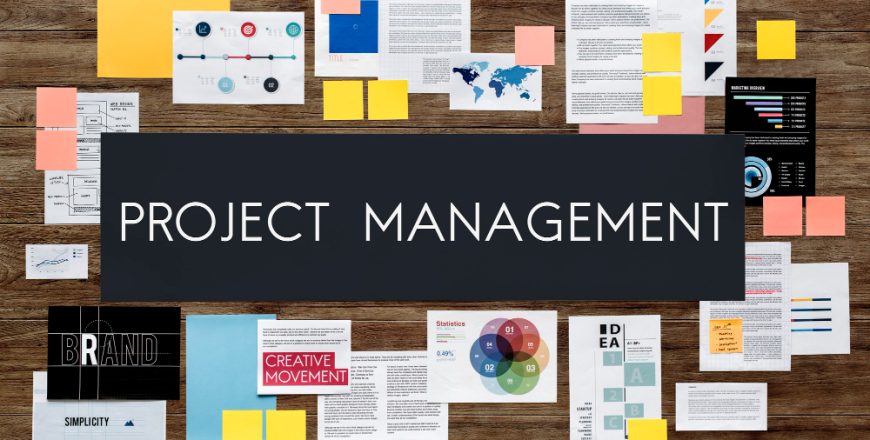
Recent Posts
- Google Cloud Platform’s Latest Innovations: Transforming the Future of AI and Cloud Computing
- Exploring Azure’s Cutting-Edge Services in 2025: A Step Towards a Smarter Future
- What Businesses Need to Know About Quantum Computing and Big Data
- The Future of Edge AI and Its Impact on Cloud SaaS Solutions
- AI, Big Data, and Cloud SaaS: A Triple Threat for Business Growth
